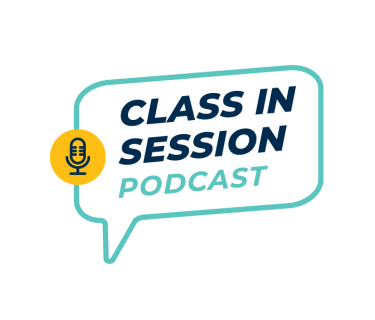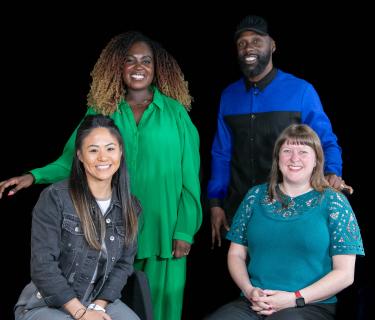Challenging the myth: University isn‘t for everyone
Despite the broadening accessibility of higher education, misconceptions remain that university is designed only for certain types of people. In this first episode of our Class in Session podcast series, host Afua Hagan and a panel of Arden University staff, students, and guests from diverse backgrounds dismantle these stereotypes and share their personal journeys of overcoming barriers to higher education.
To watch the podcast episode in full, please visit one of the following Arden University channels:
Arden University Apple Podcasts
You can read some of the podcast highlights below.
Presenter, Afua Hagan: Welcome everyone to today's conversation about redefining who university is for. Dilshad, let's start with you. Can you share how your background influenced your views on higher education?
Dilshad Sheikh, Provost, Arden University: Absolutely, Afua. Growing up in a large family after migrating from Nairobi, I was constantly surrounded by low expectations due to my gender and ethnicity. Despite these challenges, my family's support, particularly my father’s encouragement, was pivotal. He instilled the belief that education was within my reach, which pushed me to pursue and succeed in academia.
David Honeywell, criminology lecturer: Like Dilshad, my path was unconventional. I began my academic journey while incarcerated. By sharing my story openly, I aim to dissolve the stigma and imposter syndrome that many of my students, often from similar backgrounds and experience. It's about showing that university is indeed for everyone, regardless of their past.
Daukenumwerimi Victory Charles, BSc (Hons) Computing student: My experience resonates with David's point on imposter syndrome. Coming from Nigeria, the cultural and internal pressures made me doubt my place in higher education. However, my determination to shift my family’s educational narrative motivated me to embrace the challenge, proving that personal background shouldn’t define academic capability.
Anju Solanki, founder, MIA Consulting Group: I faced imposter syndrome from a different angle. As a woman raised by a single mother in a resource-limited household, university seemed out of reach. It was the practical need to stabilise my family’s financial situation that propelled me into higher education, transforming my outlook and opening up new possibilities.
Afua Hagan: It's inspiring to hear how each of you transformed personal challenges into academic success. Dilshad, how does Arden University support students who might feel like outsiders?
Dilshad Sheikh: At Arden, we pride ourselves on being inclusive. We deliberately keep our entry criteria flexible to accommodate students who may not have traditional academic qualifications but have rich life experiences. This approach not only diversifies our student body but also enriches the learning environment for everyone.
Charles: That inclusivity was crucial for me. The personalised support from faculty and peers at Arden helped me overcome initial struggles and truly thrive. Whether it was academic guidance or emotional encouragement, knowing I wasn't alone in my journey made a huge difference.
David Honeywell: And it’s about continuity, ensuring that the support doesn't end at admission. My role as a lecturer involves fostering an environment where students can openly discuss their backgrounds and challenges, creating a supportive community that counters the alienation often felt by non-traditional students.
Anju: Beyond individual stories, it's about systemic change. My work focuses on dismantling the barriers that underrepresented groups face in professional environments. By promoting diversity and inclusion within educational institutions, we can mirror these changes in the broader workforce.
Afua Hagan: Reflecting on your experiences, what would you say to someone who doubts their fit for university due to personal misconceptions?
Dilshad Sheikh: I would encourage them to look beyond societal expectations and embrace the opportunities that education offers. It’s about challenging the status quo and recognising that academic environments benefit immensely from diversity.
Charles: I’d add that taking the first step might be the hardest, but it’s also the most crucial. Don’t let self-doubt or external negativity deter you. Education is a powerful tool for transformation, and it's accessible to everyone who seeks it.
David Honeywell: And I would emphasise that feeling unsure or out of place is more common than one might think. Talking to mentors or counselors who can relate to your feelings can provide a fresh perspective and reaffirm that university is a place for personal and intellectual growth, regardless of one’s background.
With the right mindset, tools, and support, Arden University graduates are equipped to navigate their futures successfully. For more insights and detailed discussions, listen to the full episode on Arden University’s Apple, Spotify, or YouTube channel.
To browse Arden University courses and find the degree that’s right for your career goals, please visit our courses page.





